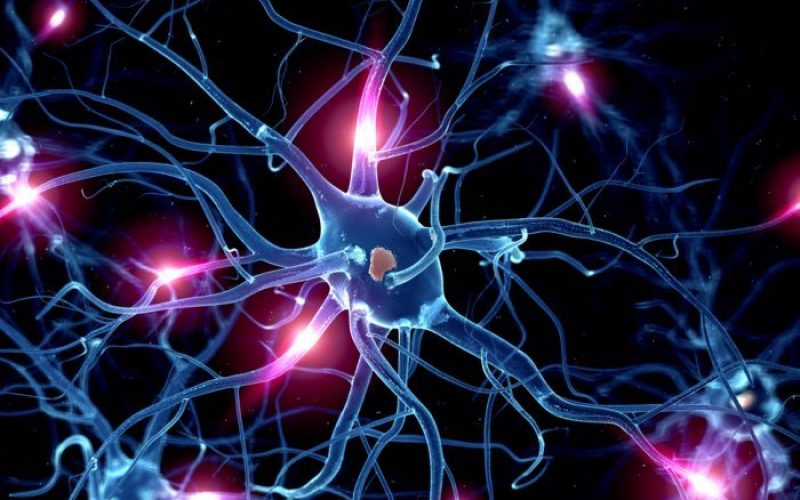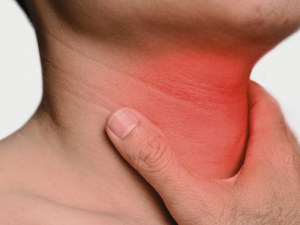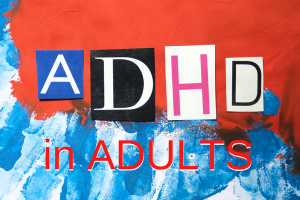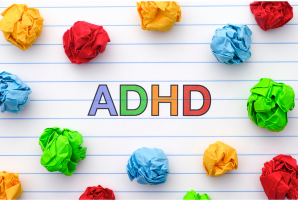Serotonin is sometimes called the happy chemical because it contributes to wellbeing, mood and happiness. Serotonin is widely believed to be a neurotransmitter although some scientists think it is a hormone.
Here’s the science bit
- The scientific name for serotonin is 5-hydroxytryptamine or 5-HT.
- Serotonin is believed to help regulate mood and behaviour, appetite and digestion, aid sleep, memory, sexual desire and function.
- Studies have found links between serotonin and bone health, breast milk production, liver regeneration, and cell division.
- Serotonin relays signals between nerve cells, playing a key role in the central nervous system (CNS) in the general functioning of the body, and especially the gastrointestinal (GI) tract.
- Serotonin cannot cross the blood-brain barrier, so any serotonin that is used in the brain must be produced inside the brain.
- There may be a link between serotonin and depression
- Medication that alters serotonin levels are often used to treat depression, nausea, and migraine, and may have a role in obesity and Parkinson’s disease.
- Diet, light therapy and exercise are natural ways to increase the body’s serotonin levels.
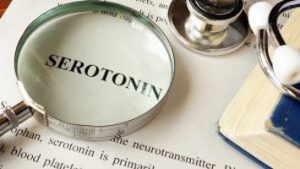
What does it do?
Serotonin plays an essential role in:
- The regulation of appetite
- Body temperature
- The tone of blood vessels
- Perception of pain.
- Depression
- Migraines
- And the health of the mucous membranes in the stomach and intestines
Mood and mental health
In the brain, serotonin impacts levels of mood, anxiety, and happiness. Illicit mood-altering drugs such as Ecstasy and LSD cause a significant rise in serotonin levels.
The digestive system
Serotonin is involved in hunger signalling, it is a hormone messenger which enhances the absorption of nutrients. Serotonin stimulates the muscular contractions of the intestine to facilitate the passage of food through a process called peristalsis.
It also plays a part in reducing the appetite while eating.
The gut produces more serotonin to increase transit time if we eat something that is toxic or irritating resulting in nausea and diarrhoea
Blood clotting
Serotonin is used and stored by blood platelets and released when there is an injury or wound.
Deficiency, signs and symptoms
- Low levels of serotonin are associated with poor memory, low mood, anxiety irritability or aggression.
- Sugar or simple carbohydrates cravings have been linked to serotonin deficiency.
- Low levels of serotonin have been related to insomnia or sleep difficulties.
Mood and depression
Studies have shown that people with depression often have low levels of serotonin, but it is not clear whether low serotonin levels contribute to depression, or if depression causes a fall in serotonin levels.

What causes serotonin deficiency?
- Vitamin B6 deficiency, it is essential in the synthesis of serotonin from tryptophan.
- Low dietary levels of L-Tryptophan
- Low levels of Theanine, another amino acid abundant in green tea leaves
- Prolonged periods of stress, resulting in high cortisol levels
- Some prescription medications and drugs.
- Lack of sunlight.
- Hormonal fluctuations, deficiencies, or imbalances.
- Caffeine.
- Cigarette smoking.
- Low blood sugar.
Low Serotonin levels in men and women
A study showed that men and women respond differently to low serotonin levels. For women, anxiety, cautiousness, low mood were most reported. While in men compulsive behaviours like excessive alcohol consumption, impulse control disorders and ADHD were more noted.
How do we make serotonin?
As much as 95 percent of the serotonin in the body is produced in the gut. Serotonin isn’t found in foods, it is synthesised from Tryptophan one of the amino acid which are the building blocks of protein.
Diet
Turkey, cheese and whole eggs (with yolks) and salmon are rich sources of tryptophan. Tofu and other soy foods along with nuts are good sources of tryptophan for vegans and vegetarians. Also, chickpea, bananas, beetroot and pineapple. Tryptophan needs carbohydrate for the body to get a serotonin boost, so adding whole grains is helpful, for example, scrambled eggs on whole-grain toast

Other ways to boost serotonin
- According to a paper published in the Journal of Psychiatry and Neuroscience, natural serotonin boosters include;
- Sunshine or light therapy.
- Regular exercise is a proven mood-booster and will build serotonin stores
- Meditation: regular sitting or moving meditating can boost serotonin levels via its stress-relieving benefits.
Disclaimer:
Please note: This information is for guidance only, and should not be considered a substitute for medical advice, diagnosis or treatment given in person by a trained health professional.
SaveSave
SaveSave
SaveSave
SaveSave
SaveSave
SaveSave
SaveSave
SaveSave
SaveSave
SaveSave
SaveSave
SaveSave
SaveSave

